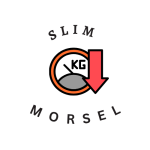In today’s world of quick fixes and viral health tips, many people are asking, “Can folic acid reduce belly fat?” On the surface, this might seem like just another wellness claim.
But as I dug into the science and sifted through both medical literature and marketing pitches, I realized the answer isn’t simple. Yet, it’s important for anyone serious about managing weight and improving metabolic health.
While folic acid is important for overall health, there’s no direct evidence that it significantly reduces belly fat in humans. And that distinction between solid evidence and speculation is crucial.
What is Folic Acid, and Why Is It Important?
Folic acid, also known as vitamin B9, is a synthetic form of folate, a naturally occurring B-vitamin. It plays a vital role in:
- DNA synthesis and repair
- Red blood cell formation
- Amino acid metabolism
- Pregnancy and fetal development
Often included in prenatal supplements and fortified foods, folic acid is essential for overall health. However, its role in fat metabolism or weight regulation is less clear.
The Science Behind Folic Acid and Fat Storage
Some animal studies, particularly those conducted on broilers (a type of poultry), have shown that folic acid supplementation may reduce abdominal fat. The mechanisms suggested include:
- Modulation of gut microbiota
- Reduction of lipogenesis (fat creation)
- Suppression of adipocyte (fat cell) proliferation
- Enhancement of short-chain fatty acid (SCFA) production
For instance, one study highlighted how folic acid influenced gut microbiota composition, leading to reduced fat deposition.
This mechanistic insight offers exciting leads, but it’s important to pause here: these findings come from animal models, not humans.
Some studies suggest that folic acid supplementation may help reduce abdominal fat in animal models by influencing gut microbiota and adipocyte proliferation.
Human Evidence: What We Actually Know
When it comes to humans, the narrative becomes more cautious. Currently, there’s no strong clinical evidence that folic acid supplementation leads to belly fat loss in healthy or overweight adults.
A few small trials have looked at body weight and B-vitamin status, but their conclusions were either statistically insignificant or not focused on abdominal fat specifically.
However, these findings haven’t been consistently replicated in human studies, and folic acid’s effect on human weight and body composition is still not fully understood.
That’s a critical distinction and one often omitted in oversimplified health blogs or supplement ads.
Folic Acid Supplements: Should You Take Them for Belly Fat?
If your goal is to reduce belly fat, simply popping a folic acid pill is unlikely to make a difference. Supplements are most useful for:
- Correcting a folate deficiency
- Pregnancy and prenatal care
- Supporting overall B-complex balance
In fact, excessive folic acid supplementation without medical need could mask deficiencies of other vitamins (like B12) or lead to unwanted effects.
Beware of Overstated Marketing Claims
Some blogs and product pages promote folic acid as a “metabolism booster” or a “fat-melting vitamin.” These claims often cherry-pick data or extrapolate from studies done on animals or cell cultures.
And while it’s tempting to believe in quick solutions, the reality is more nuanced. That’s why it’s essential to distinguish science-backed information from marketing exaggeration.
While folic acid is important for overall health, there’s no direct evidence that it significantly reduces belly fat in humans.
TL;DR: Can Folic Acid Reduce Belly Fat?
| Question | Answer |
|---|---|
| Can folic acid reduce belly fat? | No direct evidence in humans. Some promise in animal studies. |
| Is it essential for health? | Absolutely — for DNA, red blood cells, and metabolism. |
| Should you take it for fat loss? | Not unless deficient or recommended by a doctor. |
Final Thoughts: A Balanced Approach
If you’re asking whether folic acid can reduce belly fat, here’s the most accurate summary:
- It is essential for many health functions and especially critical during pregnancy.
- It might influence fat metabolism indirectly through effects on gut microbiota and insulin regulation, but that’s mostly in animal models.
- There’s no reliable clinical proof that folic acid reduces belly fat in humans.
What does work? Proven strategies like calorie management, resistance training, cardiovascular activity, and a fiber-rich diet.
Supplements like folic acid might support general health, but they aren’t a magic bullet for fat loss.
FAQ: Can Folic Acid Reduce Belly Fat?
Can folic acid reduce my belly fat?
While folic acid is important for overall health, there’s no direct evidence that it significantly reduces belly fat in humans.
Some animal studies have shown promising effects, particularly in reducing abdominal fat by influencing gut microbiota and adipocyte activity, but these findings haven’t been consistently replicated in humans.
What vitamins are good for losing belly fat?
There’s no single “fat-burning” vitamin, but certain nutrients may support healthy metabolism and weight management:
- Vitamin D – Linked to improved metabolic function in some studies.
- B-complex vitamins (including B12, B6, folate) – Help convert food into energy.
- Vitamin C – Important for fat oxidation during exercise.
- Magnesium and chromium – May help regulate insulin and blood sugar levels.
Still, none of these alone will cause significant belly fat loss without diet and exercise.
What does folic acid do for your stomach?
Folic acid doesn’t directly affect your stomach in terms of digestion or fat storage. However, it plays a role in overall cellular health, including the cells in your digestive tract.
Indirectly, by supporting gut microbiota and metabolic processes, it may contribute to a healthier internal environment — but this doesn’t equate to visible belly fat reduction.
Will folic acid make you lose weight?
There is no solid evidence that folic acid supplementation leads to weight loss in humans. Its benefits lie in its role in DNA synthesis, red blood cell formation, and amino acid metabolism.
While it might assist with overall metabolic health, taking folic acid by itself won’t cause significant or targeted fat loss.

